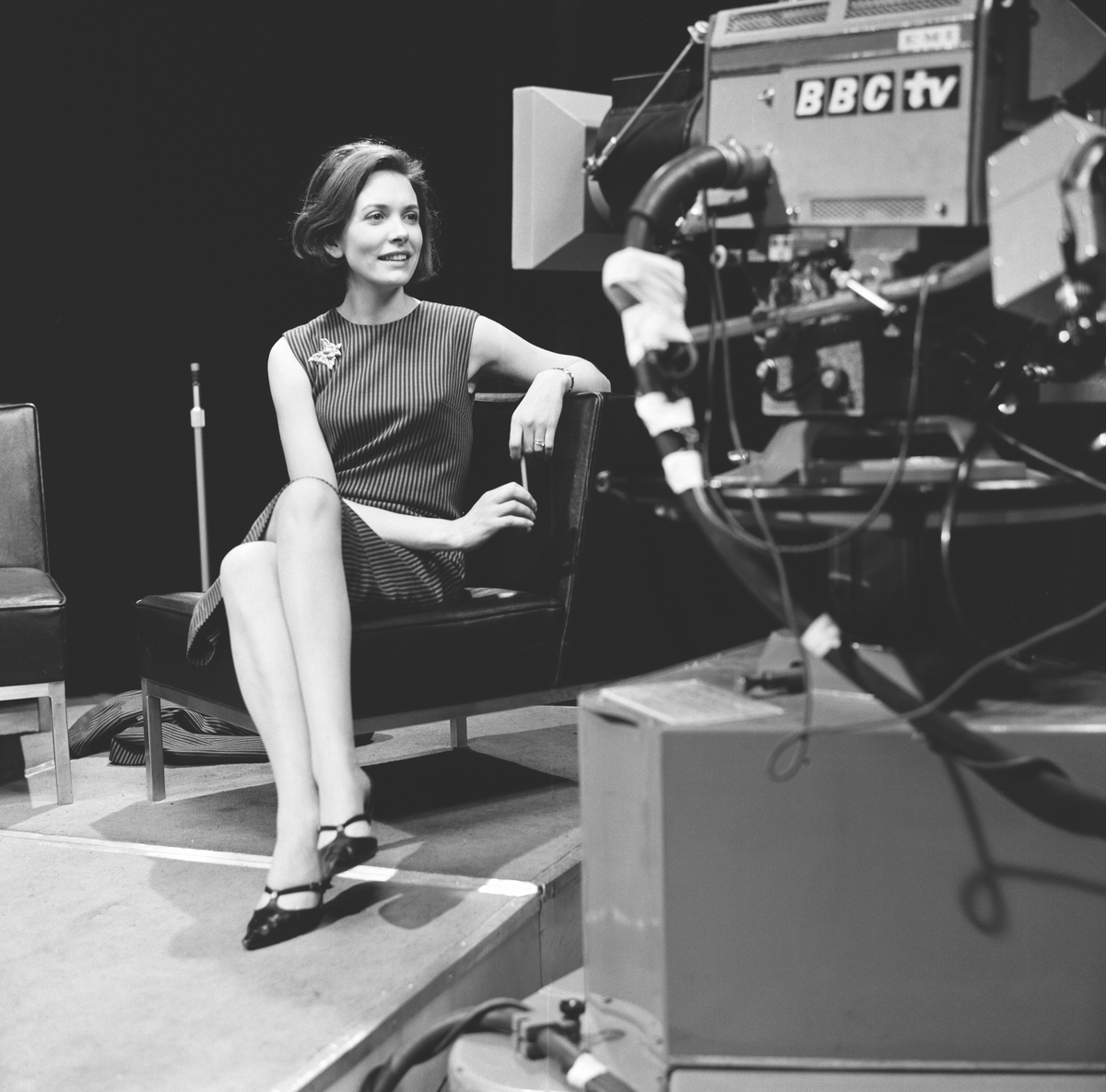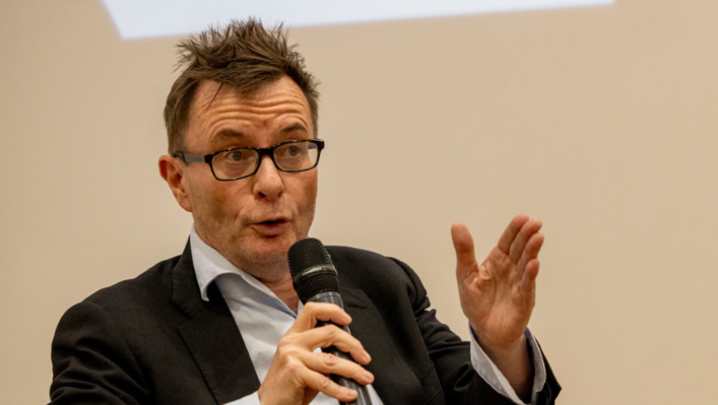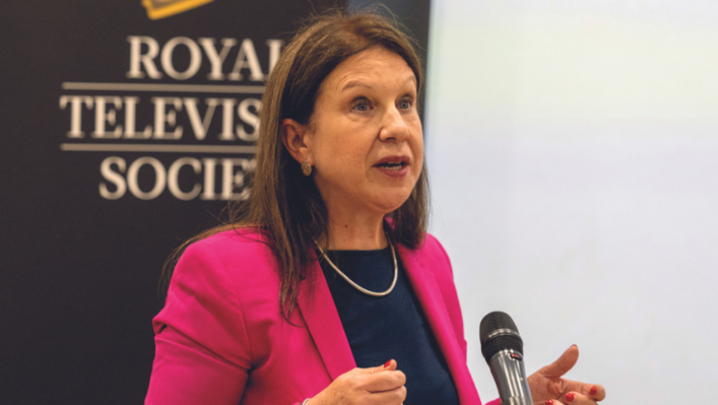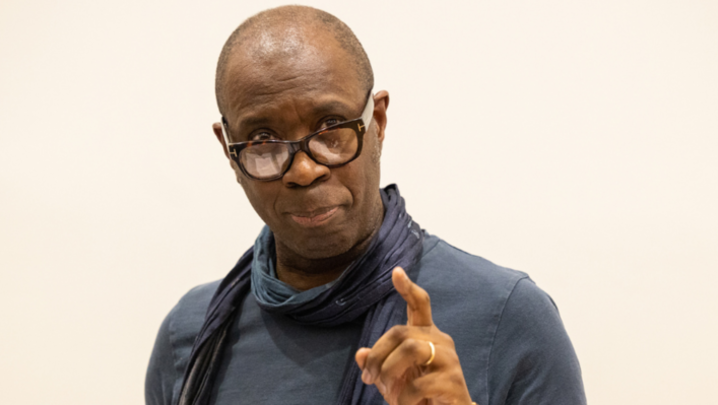This year’s Steve Hewlett Memorial Lecture speaker recalls a golden age of big budgets, big ideas and crusading journalists
As a presenter on the groundbreaking Late Night Line-Up, Joan Bakewell became one of television’s most recognisable faces. “Intelligent and the epitome of 1960s chic – a Mary Quant for the chattering classes” is the verdict of the British Film Institute, and that captures her to a T.
During an extraordinary career spanning more than 60 years, she has maintained a high profile in British cultural life, working across TV, radio and print. She hosted BBC One’s ethics discussion series Heart of the Matter, and was employed as BBC Television’s Arts Correspondent for much of the 1980s, also presenting BBC’s One’s Holiday programme.

Until last year, she had for a decade co-hosted Sky Arts’ flagship show, Portrait [and Landscape] Artist of the Year. It is hard to think of another presenter – apart from David Attenborough, who promoted Bakewell when he was Controller of BBC Two – who has worked until their ninth decade. Beyond TV, she has been a columnist for national newspapers, written novels and, since 2011, served as a Labour peer in the House of Lords.
But Bakewell turned largely to the 1960s when giving the Steve Hewlett Memorial Lecture in central London last month. She began by remember- ing Hewlett, describing the late journalist and broadcaster as “enlightened, adventurous and daring”. Addressing the Hewlett scholars in the audience – including Amelia Nicola, the current recipient of the Steve Hewlett Scholarship, who is studying for a media and TV production degree at the University of Chester – Bakewell advised: “Always persist: whatever your dream is... don’t let go of it.”
The proceeds of the lecture went to a fund that supports the scholarship initiative run by the RTS and the Media Society.
Bakewell looked back to the start of her television career. She made her debut in the early 1960s on ITV’s Sunday Break, a series billed as “a Sunday club for teenagers”. The show got Bakewell noticed and she joined the roster of presenters on BBC Two’s live arts show and discussion programme Late Night Line-Up, launched in 1964. It was “good fortune”, she recalled: “I was in at the beginning of everything, and that’s hard now because the media is so well established.”
She added: “If you can’t find a [programme] that’s starting up, start one yourself. There’s always space for new ideas and new forms – you [may] feel [they’ve] all been exhausted but they haven’t; they’ll go on being invented.”
The frequently controversial Late Night Line-Up went out live as an open-ended programme before closedown. It had its fingers on the cultural pulse of the 1960s, interviewing leading figures from the arts such as Marcel Duchamp, Karlheinz Stockhausen and Allen Ginsberg.
Discussing her interviewing technique, Bakewell advised: “Be generous, helpful and considerate. Do not go in for the kill... that’s no way to get an interesting response from anyone. It might make headlines for 24 hours, but it won’t bear any kind of fruit.”
On occasions, Late Night Line-Up became more than a little lively. “In those days in the BBC, there was something called hospitality; it meant alcohol, of course. Every single night there was a trolley loaded with alcohol. Every night it was emptied. It became a great party place,” said Bakewell.
“There were also mishaps. [Till Death Us Do Part creator] Johnny Speight, a great comedy writer and drinker, came on the programme one night having drunk a great deal, then drank a great deal afterwards.”
“We had the freedom to take risks,” said Bakewell, who recalled the show giving airtime to French students dur- ing the 1968 protests and to Vietnam draft dodgers. “We had freedom because we were led by a serious broadcaster... David Attenborough. He would defend us against the establishment, who opposed what we were doing. There was a huge movement within the BBC to get us off the air.”
She added: “I can’t pay a big enough tribute to David, who was at that time the Controller of BBC Two.... He said: ‘Lay off them, they are my guerrillas.’
“If you’re any good at all, you will run into trouble. In fact, you must almost court it because that’s the way to forge new ideas and challenge established ideas.”
Attenborough, said Bakewell, was an innovator: “When colour first come to BBC Two, his first instinct was to [launch] two things: snooker [Pot Black) and art history, Civilisation... he ran with the idea of colour in every direction. David was a genius.”
There were, recalled Bakewell, downsides to being a pioneering female presenter in the 1960s. “I was one of the first women on television, and with it [came] the attention of Fleet Street, which was not particularly attractive. I got a label which has stuck with me... until I got too old for it.”
That label, given to her by the humorist Frank Muir, was “the think- ing man’s crumpet”. Bakewell recalled: “There were lots of articles about my... short skirts and hair... I was given the sort of attention that focused where I didn’t want it to be, and I had to put up with it; it wasn’t appropriate [then] to come out and complain.
“Years later, I regretted that it created this kind of whimsy about a frivolous girl with short skirts. It didn’t do me any harm but it didn’t make me feel that what I cared about mattered, which was ideas, people, conversation, that good television could do, the good we could do in the world. I was rather high-minded.”
The RTS/Media Society Steve Hewlett Memorial Lecture was held at the University of Westminster on 3 October. It was produced by John Mair. Report by Matthew Bell.
The Heart of the Matter... a Q&A
Gillian Reynolds: Did you benefit from post-war optimism?
Joan Bakewell: We rode that tide... there was money around and people wanted things to expand. There was an upbeat feel... being part of a changing society felt good. You had a great wave of social legislation; divorce got easier, homosexuality was legalised, things that had been against social mores in our parents’ day became acceptable. They were crusaded for by my generation – we knew they were right.
Gillian Reynolds: If you ran the world, what would you make compulsory in schools?
Joan Bakewell: Civic awareness. Understanding what a community is, what your role in it is and how we are all interdependent. It would include inclusivity, balance, fairness, lack of discrimination.
From the audience: Who did you most enjoy – and dislike – interviewing?
Joan Bakewell: Nelson Mandela [for Heart of the Matter in 1990]. He’d just come out of prison... and was flying to Sweden to see Walter Sisulu. We knew where he’d be, got there before breakfast and set up a camera. He talked about forgiving and told us that in prison he had learned to speak Afrikaans so he could talk to his jailer. It told you a lot about his political judgement and the person he was.







